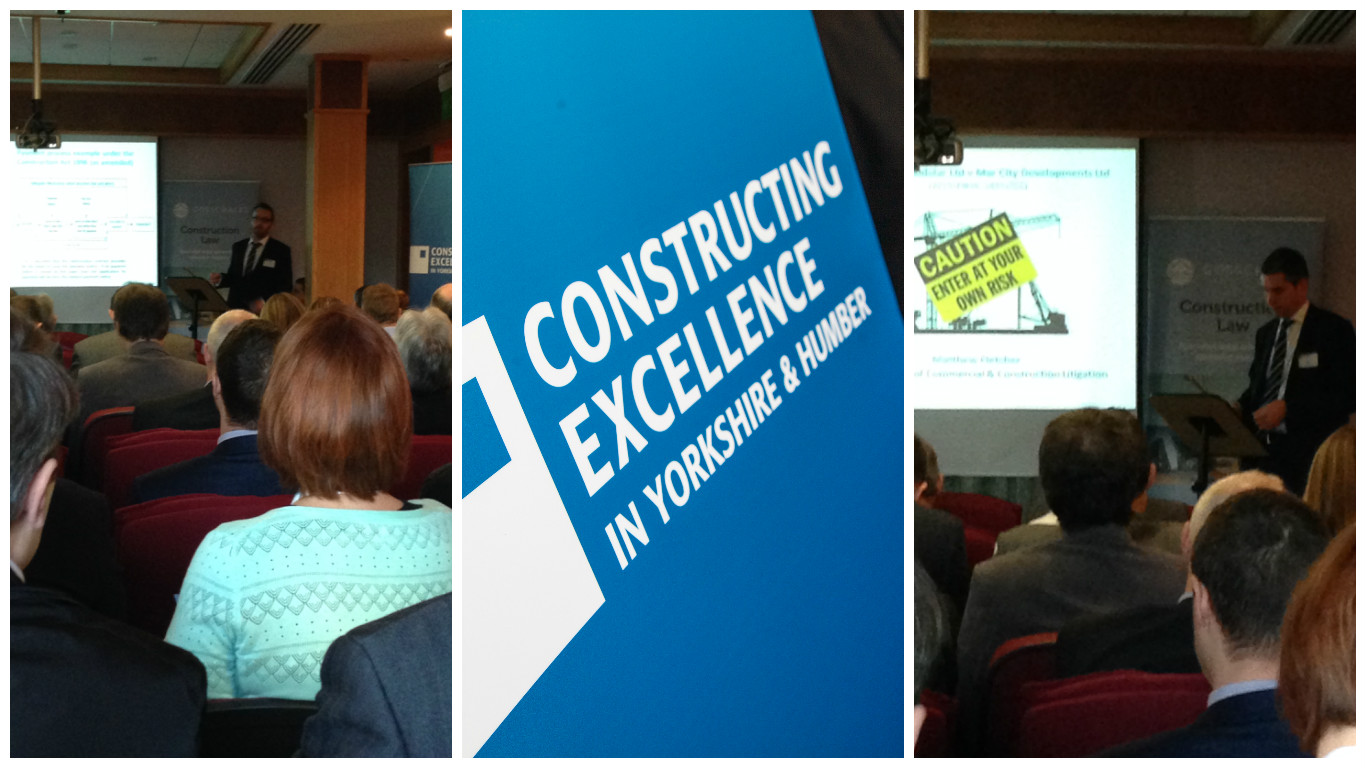
The Constructing Excellence Yorkshire & Humber seminar held in Hull on Thursday 12th November 2015 was hailed a success by attendees as they left Gosschalks’s offices with plenty to think about. Over 60 construction industry professionals from the region registered for a place at the seminar, which was presented by Gosschalks’s contentious and non-contentious construction law team. The seminar covered complex issues surrounding payment and Pay Less Notices, and the recent case law developments that affect payment under the Construction Act.
This sparked a lively Q&A discussion among the attendees about the requirements for effective notices, and was described afterwards by one delegate as “an eye opener!”
Matthew Fletcher, Partner and Head of Construction and Litigation at Gosschalks, said: “We were delighted to deliver this event with the Constructing Excellence team and play host to their first East Yorkshire event in a number of years, and we were thrilled by the positive feedback the event generated. Our aim was to get those who deal with payments under construction contracts thinking and to understand the potentially heavy financial implications if they fail to issue timely notices. We provided up an update on several key cases where it has been necessary for the Technology & Construction Court to interpret the revised payment procedures contained in the Construction Act. Construction companies really don’t want to be caught in the Act!”
Chris Groves, Partner and non-contentious and construction contracts expert at Gosschalks, commented: “We addressed many of the consequences encountered when failing to issue time sensitive payment notices. This is a major issue for a lot of construction businesses and is something on which we are happy to share our expertise and advice. We’ve already been approached by a couple of individual companies who would like us to present this briefing at their premises.”
Liz Schofield, from Constructing Excellence Yorkshire and Humber added, “We are really pleased to be bringing events back to the Humber region for the first time in over a year and were delighted to see a sixty plus audience comprising of an impressive mix of key people from the construction industry based in and around Hull and East Yorkshire. We are very much looking forward to partnering with Gosschalks to hold more events in this region in the New Year”.
A summary of the tweets and images from the breakfast event can be found in our storify summary below. Our next Constructing Excellence event will be on 21st January in Leeds and will focus on RIBA Stage 2, Specifications and BIM in Manufacturing – details and Booking here. Any questions, contact Liz and the CEYH team on +44 (0)113 812 1902 or ckeevents@leedsbeckett.ac.uk
For further information about Gosschalks events and services, please contact Claire Hill on +44(0)1482 590204 or clh@gosschalks.co.uk







